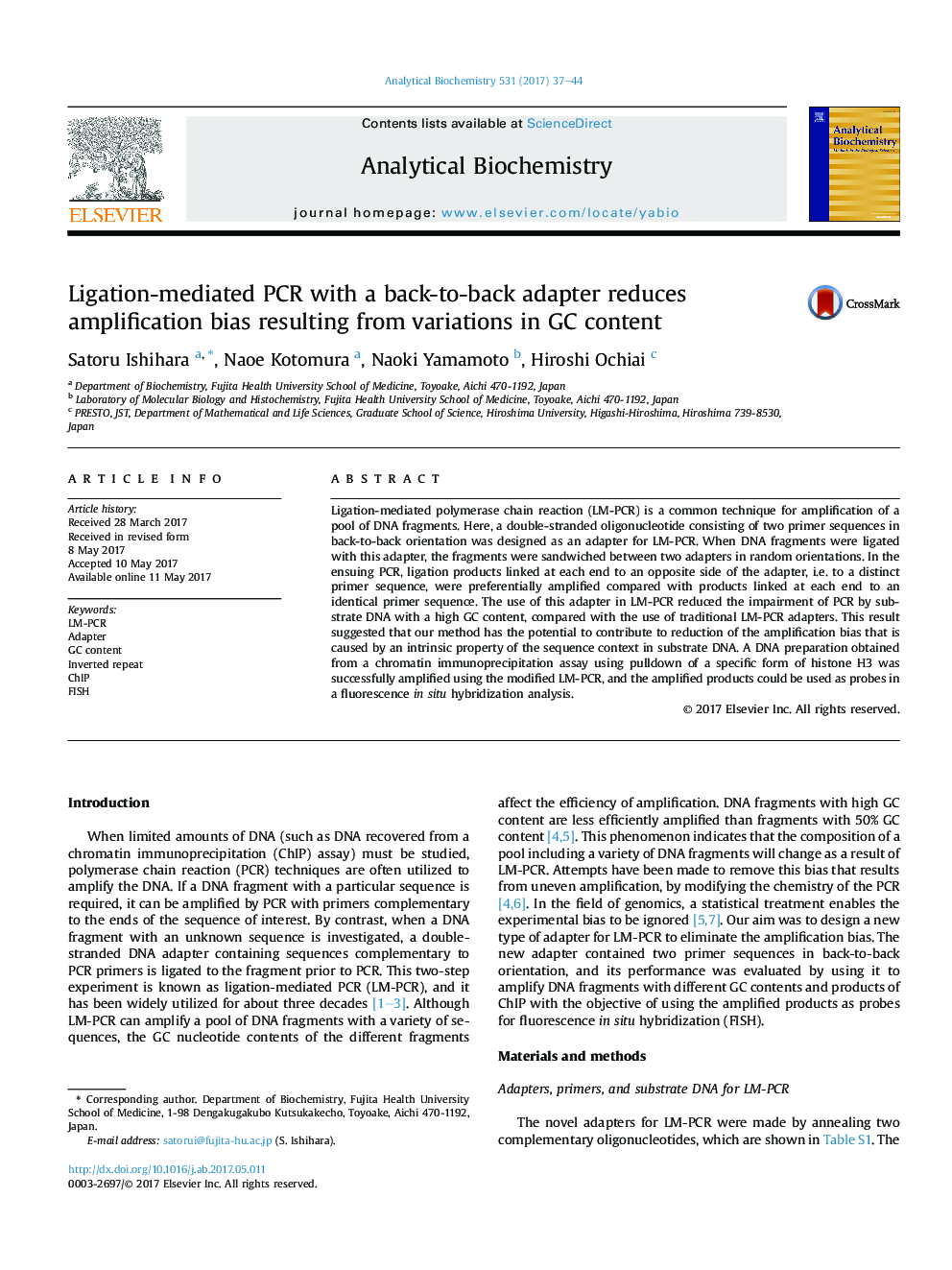| Article ID | Journal | Published Year | Pages | File Type |
|---|---|---|---|---|
| 5131527 | Analytical Biochemistry | 2017 | 8 Pages |
Ligation-mediated polymerase chain reaction (LM-PCR) is a common technique for amplification of a pool of DNA fragments. Here, a double-stranded oligonucleotide consisting of two primer sequences in back-to-back orientation was designed as an adapter for LM-PCR. When DNA fragments were ligated with this adapter, the fragments were sandwiched between two adapters in random orientations. In the ensuing PCR, ligation products linked at each end to an opposite side of the adapter, i.e. to a distinct primer sequence, were preferentially amplified compared with products linked at each end to an identical primer sequence. The use of this adapter in LM-PCR reduced the impairment of PCR by substrate DNA with a high GC content, compared with the use of traditional LM-PCR adapters. This result suggested that our method has the potential to contribute to reduction of the amplification bias that is caused by an intrinsic property of the sequence context in substrate DNA. A DNA preparation obtained from a chromatin immunoprecipitation assay using pulldown of a specific form of histone H3 was successfully amplified using the modified LM-PCR, and the amplified products could be used as probes in a fluorescence in situ hybridization analysis.
